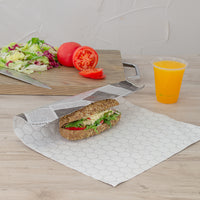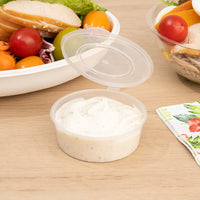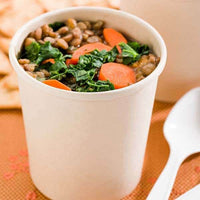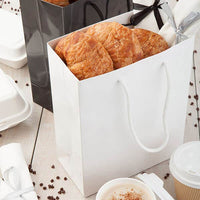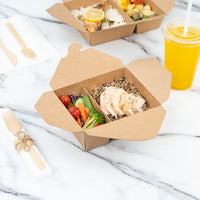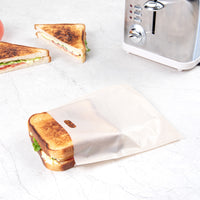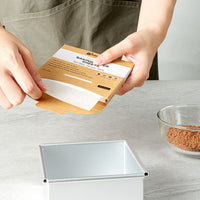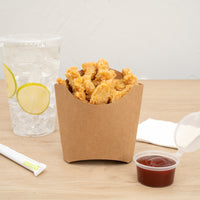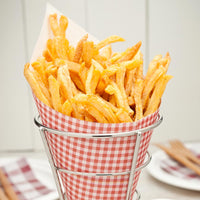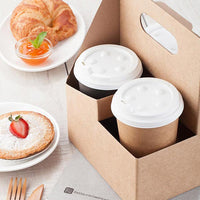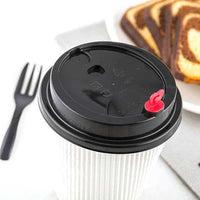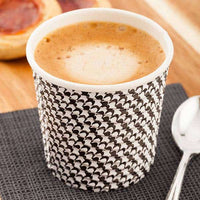Ensure you meet strict regulations without sacrificing performance by using our PFAS-safe packaging supplies coated with safe alternatives. From food wraps to pizza boxes, our collection of take out supplies with no PFAS added are specially engineered to keep oils locked in.
Our bakery supplies with no PFAS added feature non-toxic, grease-resistant coatings that prevent unsightly stains from frostings, fillings, or icings. Use our PFAS-safe bakery products to prepare and serve desserts with style and convenience.
Elevate the perceived value of any dish using our collection of single-use tableware with no PFAS added. From red food boats to white plates, our PFAS-safe tableware makes it easy to find eco-friendly tableware that complies with state laws and complements your restaurant’s aesthetic.
Our PFAS-safe coffee supplies are excellent for offering guests espressos at a catered event or lattes at your coffee shop. Use our insulated coffee cups with no PFAS added to maintain the freshness of drinks or our coffee stirrers to easily mix hot beverages.
- No PFAS added paper
- No PFAS added bagasse
- Bio-wax coating
- Clay coating
- PLA plastic
- PE plastic
- PET plastic
- Carbon steel
- Stainless steel
- Aluminum
- Silicone
- Glass
- Ceramic
- Porcelain
Lawmakers are introducing legislation that places bans on using PFAS in packaging, cosmetics, carpets, and many other products. These state regulations prohibit products containing PFAS that are intentionally added or present past certain levels. A person cannot distribute, sell, or use any foodservice product containing PFAS substances that do not meet regulations in the states below.
New York
- Date regulations take effect: Dec. 31, 2022
- Date regulations take effect: Jan. 1, 2023
- Date regulations take effect: Feb. 1, 2023
- Date regulations take effect: July. 1, 2023
- Date regulations take effect: Dec. 31, 2023
- Date regulations take effect: Jan. 1, 2024
- Date regulations take effect: Jan. 1, 2024
- Date regulations take effect: Jan. 1, 2024
- Date regulations take effect: Jan. 1, 2024
When choosing the right restaurant supplies, it is important to consider products that do not have harmful chemicals like PFAS. Restaurantware offers a wide selection of foodservice supplies with no PFAS added, making it simple for establishments to provide guests with a safe dining experience.


